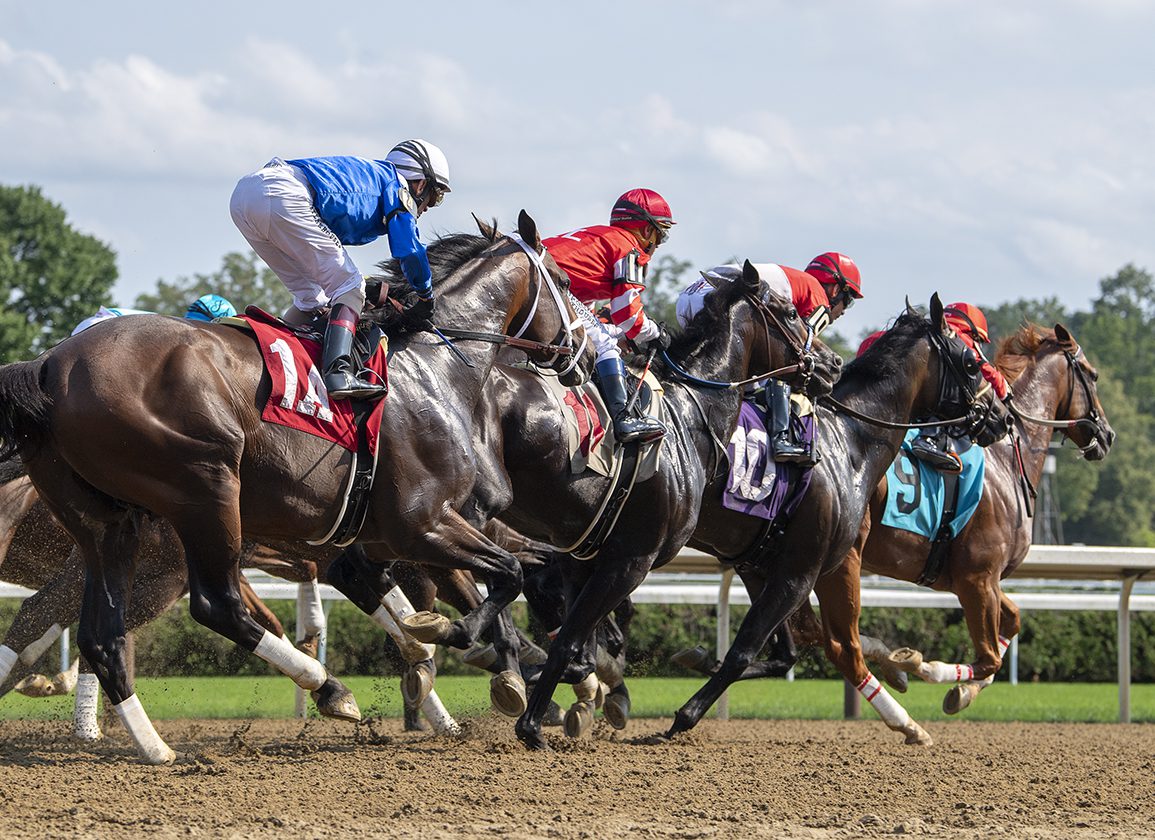By Bill Finley
After the venerable and influential news show 60 Minutes aired a piece on horse racing last week, people within the industry were understandably upset. The story was ugly, filled with graphic and grisly coverage of horses breaking down, and portrayed racing as a sport where drugs, corruption and horse fatalities had reached the point of being out of control.
“Horse racing is an industry where extremely devoted people labor because of one common thing: we all love horses, especially thoroughbred horses,” Denali Stud's Craig Bandoroff wrote to 60 Minutes. “That did not come across in the piece. Granted your story was about our problem but some senses of balance would have been appropriate. I was very disappointed in both the piece and 60 Minutes in general. It makes me question the integrity and balance of the pieces I have seen over these many years.”
Bandoroff and everyone else upset by the story had a right to be. The story did lack balance. It told just one side while ignoring the progress that the sport has made to get its problems under control and that most people in the sport are decent people who would never dream of using performance-enhancing drugs on their horses or doing anything that would put them in danger. But to portray this as a hatchet job on horse racing isn't fair either. There really is a lot wrong with this sport and nothing 60 Minutes had to say about horse racing was necessarily inaccurate. Sometimes, it's tough to have to stare at yourself in the mirror.
We'll get to that. But first the areas where 60 Minutes took short cuts that allowed them to ignore the other side of the story:
The sport has made meaningful progress when it comes to breakdowns. In 2009, the first year the Jockey Club kept statistics, the fatality rate was 2.00 horses per 1,000 starters. In 2022, the number had dropped by 37.5 percent, down to 1.25 horses per 1,000 starters. This didn't happen by accident. The sport worked together to make tracks safer and to keep infirm horses off the track. None of this was ever mentioned.
“Why is the only news offered for this sport about tragedy or corruption?” breeder JoAnn Hayden emailed 60 Minutes. “Where were the statistics to show how drastically the fatality numbers have decreased and the protocols that have been implemented for the safety and welfare of our horses and jockeys and their track surfaces?”
“I accept that you have the right to present your gruesome facts and sound bites of cheaters and horrific footage of horses breaking down, but you could have acknowledged the honest hardworking people in our industry and left us with HOPE. WE deserve better!”
60 Minutes also led you to believe that Bob Baffert falls into the same category as convicted criminals Jorge Navarro and Jason Servis. While the fact that he has had many medication positives is regrettable, he's never been caught using performance-enhancing drugs. Yet, since Baffert is the sport's most high-profile trainer and has had his share of problems, he was an easy target.
“For decades, the sport entirely overseen by state racing commissions has struggled to stop repeat drug violations, notably by the sport's most high-profile trainer, Bob Baffert,” host Cecilia Vega said. She did not mention that most of Baffert's violations are for overages of therapeutic medications.
There was also a theme throughout the segment that the use of drugs is what has led to the high rate of breakdowns. There's no doubt that some horses have broken down because the drugs in their systems allowed them to run through pain, but breakdowns and drugs are two separate issues.
But 60 Minute's main point-that the sport's drug problems and safety issues are a serious problem-was spot on. Blaming the messenger doesn't help.
“Horse racing has reached its moment of reckoning and we wanted to know, can the sport really be reformed or is it too late?” Vega said as she opened the story. There was nothing hyperbolic about this statement. It is the question that hovers ominously over our sport and should have everyone worried about its future.
“How long is it going to take to clean this up?” Vega asked HISA CEO Lisa Lazarus. “It will probably take years to be fully confident that we've got a fully clean sport,” she responded.
“How big of a problem is doping in horse racing?” Vega asked Jockey Club Chairman Stuart Janney III. “It's a big problem,” he said. “It strikes at the integrity of the sport. It's not good for the horses. There's nothing about it that is acceptable.”
In between the interviews with Janney and Lazarus, the audience was told of the 12 deaths surrounding the running of this year's GI Kentucky Derby, that there were two deaths leading up to the Breeders' Cup and that 13 horses died during the Saratoga meet. It delved into the stories of Servis and Navarro and played wiretaps of the two of them discussing their doping routines. It played a particularly sickening excerpt of a wiretapped conversation that caught harness trainer Nick Surick talking about all the horses that Navarro killed and broke down that he “made disappear.”
These things happened and by exposing them to the some 9 million people that watch 60 Minutes each week the sport looked terrible and likely inched closer to losing its social license to operate.
At least the segment didn't portray the situation as hopeless. It gave time to Janney, Lazarus, FBI agent Shaun Richards and Meadowlands owner Jeff Gural, all of whom expressed the opinion that HISA is a huge improvement over the old way of doing things, when state racing commissions were responsible for drug testing and penalizing violators, and that things are heading in the right direction.
This was an exchange between Vega and Janney:
Vega: “Can you describe what horse racing regulation has been like in the last 50 years?”
Janney: “A failure…and increasingly so.”
Vega: “It's gotten worse?”
Janney: “It's gotten worse, and quite frankly states have not done their job.”
Will HISA usher in the changes we so badly need? Janney obviously thinks so. So far, the results have been mixed, but it's too early in the game to say whether or not it's going to make a real difference or not.
The problems are real. Though fewer horses are breaking down, the numbers remain unacceptably high. And every time a trainer winning at 30% moves up a horse by four or five lengths in the first race after a claim, you'd have to have your head buried in the sand to think there isn't something nefarious going on here and that it involves performance-enhancing drugs.
Yes, 60 Minutes could have tried harder to have a more balanced report, and maybe that just didn't fit its agenda. Yes, we are doing better. But let's not pretend that our problems aren't serious ones that desperately need to be addressed. That was the gist of the 60 Minutes piece, and they didn't get that part wrong.
Not a subscriber? Click here to sign up for the daily PDF or alerts.






